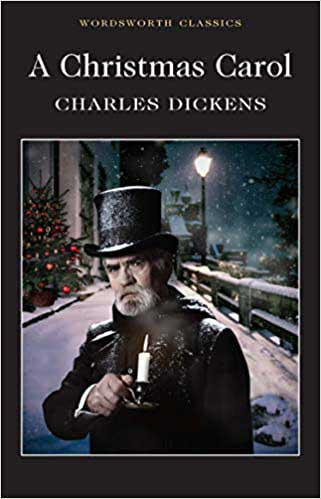Year 7
Aaminah Patel has written an outstanding story inspired by the novel ‘Trash.’
Inspired words

As I glimpsed just above the horizon, I could see piles upon piles of rubbish, with nothing else in sight. Everyone just leaves their waste here, lucky for us, that’s how we earn a living. The trees sway from side to side, causing leaves to ripple and fall upon all of the waste. The wind howls amongst the silence like a wolf, ready to pounce on its prey. The ever-growing echo of nothingness fills the air, like an arrow, piercing a hole right through me. This is where I live. This is my home. The deepening piles of rubbish allow me to sink my toes in, squeezing them, readying myself for the day ahead.
Trying to make my way through the waste, I turn over any piece of plastic that I find, hoping that it is clean enough to collect. Memories of my friends and family waver through my head, allowing some strength to rise up through my body. The sun is rising, it is almost the morning. The vibrant embers of the sun’s rays fill my eyes and the amber sky, surely but surely, begins to turn into a faint colour of cobalt. Very soon the rise of the others and their hassle would fill the atmosphere, awakening me fully. Waking up earlier than the others, was what I liked to do. It would save us more time, and we would earn more pesos. Not very much at that, but it’d still be an improvement.
Crawling beneath the waste, perilous and poisonous insects writhe their way through the rubbish, carrying with them precarious diseases that could infect anyone in sight. Sometimes I wonder, is anyone out there? Is there anyone beyond this dump site? Gazing at the stars every night, I stare deep into my thoughts, thinking if anyone will come to save me. The stars twinkle back, giving me hope that soon, just maybe one day, I will be saved from this prejudice, and will be back home, like this was all just some infatuated dream, that was never reality. I close my eyes, feeling the warmth of my mother’s arms, making me feel calmer, safer, and most importantly …loved.
I just wish for a moment, I just wish, that my life was like those who sometimes walk by the street, or drive past in their glistening new car, with fresh clothes to wear every day, and a smile of relief and happiness embedded onto their faces. Sometimes – I just think it is not fair. It is not fair how life is so impenetrable for people like me, and so easy for others. Oh well, I guess it is just fate, perhaps. Apart from these dreadful thoughts that I have mentioned to you about, the thoughts that someone would experience if they were like me, there are some benefits to having a life like this. An example is that we get a reward for sorting through the rubbish. If we find something like clear plastic, we would get five pesos and something like white paper would earn us seven pesos. Either way, this would be a fortunate amount to be able to earn a living at the dumpsite. Another helpful feature of living amongst all this waste is that new waste would come in every week or day which would contribute to all of the waste we would have to go through to find even more benefitting items!
In reward for our assiduous work, food and water would be distributed amongst all of us workers, attending to our source of living. With all of the extra pesos we would build places of rest and areas where we can sleep which are constructed using scrap pieces of metal and other useful materials.
I hope that my writing has been delineated enough, and that soon I will be saved from this difficulty as if it never happened. Anyone out there… just anyone, please help me have a customary life, away from all these worries, so me and the millions of families here can forever be content. I would become eternally indebted to you, if together you all tried your hardest, and assisted people spending their lives in dump sites like this.
Year 8
Here is a remarkable short description that Zainab Godar has written independently!
I stormed out of the house in anger heading to the car. He called out my name softly and I stopped and turned around. His light brown hair was dancing in the wind and his beguiling, penetrating eyes studied mine. Those aesthetic, rouge lips were moving, saying something but I was too busy admiring his beauty.
Year 9
Here is a brilliant review written by Raeesa Mank!
Watch with Glee!
 Looking for a fun filled, feel good, all singing and dancing show? Stop the search! Glee is here to relieve you of the tedious, monotony of life. Imagine a high school full of jocks, sassy cheerleaders, awkward teenagers and a dominating cheerleader coach that runs the school, insulting every passing student for a slight intake of breath. Well don’t hold your breath, start singing along to the foot –tapping tunes of Glee whilst watching the loveable characters navigate their way through the awkward years of high school and beyond.
Looking for a fun filled, feel good, all singing and dancing show? Stop the search! Glee is here to relieve you of the tedious, monotony of life. Imagine a high school full of jocks, sassy cheerleaders, awkward teenagers and a dominating cheerleader coach that runs the school, insulting every passing student for a slight intake of breath. Well don’t hold your breath, start singing along to the foot –tapping tunes of Glee whilst watching the loveable characters navigate their way through the awkward years of high school and beyond.
Although the show has a myriad of brilliant characters, each bringing their own personality and charm to the role, there are clear contenders for the ‘stars’ of Glee. Rachel Berry, played by Lea Michele, begins the series as an obstinate, pushy, brazen teenager with one clear goal: stardom. She is quickly brought back to reality when she meets fellow divas Kurt (Chris Colfer) and Mercedes (Amber Riley) after joining the newly established Glee club, run by Mr Schuster (Michael Morrison) who is on a one way mission to bring back the Arts to McKinley High. But every exceptional show needs a villain right? Well this antagonist comes with her own vengeance against all things performance based: Coach Sue Sylvester.
Despite teachers stereotypically becoming a safe haven for many pupils, this is not the case for Glee’s biggest antagonist – Sue Sylvester. Decked out in her fierce tracksuit, Sue is ready to eliminate any joy from the lives of the Glee club and bring down her number one enemy – Will Schuster. The show is as typical as one might expect: bullying; prejudice and relationships are at the forefront of the TV show but the directors and producers have not hidden away from bringing to light important issues and inequalities that need to be recognised. With stellar ratings on Netflix (over 500,000 streams this year alone), the show ran for six seasons when it first aired in 2009 and became a firm family favourite.
So who needs a little Glee in their life? Everyone! “There’s a song and dance in everyone” says Dianna Agron (Quinn Fabrey). These songs can be cherished and commemorated, year on year, by those most dear to us. Although the soundtrack has become a number one playlist on Spotify, it’s difficult to reminisce on Glee without recognising the tragedies associated with the programme. Cory Monteith (Finn Hudson); Naya Rivera (Santana Lopez) and Mark Salling (Noah Puckerman) are all remembered for exceptional performances full of talent and a future of stardom, horrifically cut short by the sharp knife of a short life.
Bored of the same thing on TV? Bake Off not satisfying enough to watch? Looking for something to fill the yearning hole in your heart? Well Glee will hit the spot. Sit back and watch the brilliantly well written, full of humour and nostalgic series with friends and family. Perfect for teenagers but maybe not any younger, I definitely recommend this wonderful series on the small screen. 6 seasons of bliss! Once you’ve started, you won’t be able to stop – trust me!
Don’t wait, watch Glee today!
Year 10
Libby Hodgkinson has written a fantastic essay on the theme of poverty in A Christmas Carol.
A Christmas Carol was written by Charles Dickens in December 1843. In the novella, he explains the divide between the rich and the poor during the Victorian period. Poverty for many of those during this time was a huge problem. As we read the novella, we can see the views of different characters representing the socialist and capitalist views and how many people would respond to the divide in classes. A Christmas Carol is important because it teaches us how difficult it was for those living in poverty and how desperate people become when things grow worse.
 In Stave 1, the writer gives us the impression that Scrooge’s clerk, Bob Cratchit is suffering from poverty. The quotation “Scrooge had a very small fire, but his clerk’s fire was so very much smaller, that it looked like one coal” shows that Scrooge refuses to give Bob Cratchit any more than just one piece of coal. The adjective “smaller” implies that Scrooge is very tight-fisted and doesn’t respect his clerk enough to give him his basic human rights. This also shows the lack of money Bob Cratchit has, as he relies on Scrooge to provide warmth for him but he doesn’t get much out of Scrooge as he believes that Bob doesn’t deserve it. As a reader, this makes us begin to see the capitalist views that Scrooge projects throughout the book and how he refuses to spend money on someone poor, who is in need of essentials that he can’t afford. Scrooge then goes on to explain that the poor can go to jail or the workhouses if they need some sort of comfort and food in order for them to survive.
In Stave 1, the writer gives us the impression that Scrooge’s clerk, Bob Cratchit is suffering from poverty. The quotation “Scrooge had a very small fire, but his clerk’s fire was so very much smaller, that it looked like one coal” shows that Scrooge refuses to give Bob Cratchit any more than just one piece of coal. The adjective “smaller” implies that Scrooge is very tight-fisted and doesn’t respect his clerk enough to give him his basic human rights. This also shows the lack of money Bob Cratchit has, as he relies on Scrooge to provide warmth for him but he doesn’t get much out of Scrooge as he believes that Bob doesn’t deserve it. As a reader, this makes us begin to see the capitalist views that Scrooge projects throughout the book and how he refuses to spend money on someone poor, who is in need of essentials that he can’t afford. Scrooge then goes on to explain that the poor can go to jail or the workhouses if they need some sort of comfort and food in order for them to survive.
In Stave 2, we are introduced to the character of Fezziwig who is being described as being courteous and well mannered. We see this from the quotation “…shaking hands with every person individually.” The word “individually” shows how he takes out his own time to respectfully greet every single person to make them feel welcome and implies that his actions juxtapose Scrooge’s. From this we notice how Fezziwig is caring for the poor, however Scrooge likes to think that they are a waste of time, and don’t deserve the respect. As a reader, from this we can see that Fezziwig clearly represents the socialist views and that he is a mouthpiece for Dickens and what he believed in.
In Stave 3, the writer makes it clear that Scrooge doesn’t show any interest in helping the poor. A quote to support this is “If he be like to die, he had better do it, and decrease the surplus population.” The phrase “decrease the surplus population” implies that Scrooge thinks that the poor are not necessary and if they were to die, then he believes that they had better die quickly to reduce the amount of “unwanted people” on the planet instead of reaching and trying to help them overcome the poverty they are living in. As a reader, we discover that Scrooge is continuing to be the tight-fisted, selfish man he is not having a care in the world for those suffering in poverty. In the novella, the ghost is repeating this phrase to try and make Scrooge feel guilty by using his own exact words against him.
In Stave 4, Dickens portrays poverty when he speaks about the poorer parts of the city. It is clear from the quotation “Reeked with crime, with filth and misery” that the poor were very desperate for essentials that they needed to survive that they had to steal from others. The word “filth” shows that their living conditions also had a huge impact on their life and that they couldn’t afford to buy basic needs to live a better life. The word “reeked” also implies that these robberies and break-ins occur regularly and proves how these people are struggling. We begin to see Scrooge’s face become drawn in shock when he sees the poorer side of the city. As a reader, this makes us question whether Scrooge would continue to be selfish towards the poor or if his actions would eventually change.
In stave 5, Dickens shows us that Scrooge has decided to help out with the poor and those who are suffering. The quotation “I’ll raise your salary, and endeavour to assist your struggling family” suggests that Scrooge has changed and he says this to Bob Cratchit when he realises how badly he treated him. This would shock the reader as Scrooge’s opinions now juxtaposes his previous actions as he changes his mind about how the poor should be treated. We then continue to see Scrooge become a better person as he donates money to charity to help those living in poverty to escape it.
In conclusion, Charles Dickens’ overall message was to destroy the divide between the classes and to treat all people equally, no matter how wealthy or poor they were. He also wanted us people to be more like Fezziwig and to have socialist views than to be like Scrooge.
Year 11
Here is an impressive poetry comparison by Rayyan Ali!
Compare and contrast the way war is presented in The Soldier and Dulce et Decorum Est.

Firstly, both poems are about war and both poets choose to use some form of the sonnet structure in order to convey a love or loss of love for their country. Brooke uses a sonnet to portray his absolute love and adoration for the country that has made him feel so much more superior when he looks at those from different nations. Brooke feels as though if he dies he will be in an ‘English heaven’ as he has been ‘blest’ by the fortune of being born as an Englishman. The noun ‘heaven’ has religious connotations and implies a hubristic tone to the poem as Brooke truly believes he will be relieved of any sins or bad deeds and will go straight to an ‘English heaven’ when he gives his life for his country. In comparison to this, Owen uses a broken sonnet form in Dulce to convey the idea that he no longer has a love, or feels any patriotism towards his country. The men ‘turned [their] backs’ away from the bombs, however, this could be a metaphor for the turning away from their country. This loss of love is reinforced with the last line ‘The Old Lie’ told to those ‘ardent for glory’ and used to persuade them to join the army. Owen conveys how abhorrent he finds this deceit and is repulsed by the notion that young, impressionable minds are being manipulated like this. As a contemporary reader we understand the hellish brutalities of war and find Brooke to be delusional in his opinion on war, we sympathise and feel dismayed with the unnecessary torture of so many young men during WW1. Brooke’s positive attitude will have been a product of the zeitgeist of the time, the patriotic, nationalistic but pre-war attitude. In comparison to this, Owen’s pacifist views are evident in the poem, his opposition to violence and aggression is clear.
In the poem The Soldier, Rupert Brooke wrote a lot about how much England meant to him “forever England” this quote indicates that Brooke was attached to England and now thinks it is superior to everything else. He gives the impression that England was a “English paradise” this implies that he thinks of England as its own religion and worships it, Brooke even uses words like “blessed” to show how holy and sacred he thought it was. However in the poem Dulce, Wilfred Owen, portrays the men as lost in England as if they had “turned their backs” this is juxtaposed with Rupert Brooke’s feelings. This quote also shows the verb ‘turned’ to show how distant they feel from home. Owen also talks about “men marched asleep” the word asleep suggests the men could not face the reality of what was going on and would fall asleep just to get out of that world. Owen’s point of view on war was very negative; he had got PTSD from going to war and he knew what it was really like in war. On the other hand Brooke was patriotic; he would encourage people to go to war, when he never did this shows him as a very hypocritical person. Rupert would also write in a jingoistic tone. Readers would feel like they needed to help because the zeitgeist of the time was to help each other.
Rupert Brooke would also write about the good that would come out of you going to war. He wrote about how ‘All evil shed away’ which shows that he thought by killing other men you would be achieving good deeds. However, Owen’s idea was the complete opposite to Brookes, Owen said ‘Hanging face like a devil’s sick of sin’ the word “devil” shows that war is not a good place and also the word “devil” can be linked to evil and death. Brooke also mentions the soldiers ‘ hearts at peace’ the word “peace” implies that he thinks war is peaceful war is right and the soldiers are proud of what they have done. However, again the two poets have complete opposite opinions Owen said ‘Of vile, incurable sores on innocent tongues, the adjective ‘innocent’ highlights how against war Owen was, he hated that young, impressionable boys were going to war. He believed there is no peace from this torment. Readers would value Wilfred’s opinion more because it is more valid that he went to war and he knew the things he had to do to survive. This could also make the readers feel like war is wrong also.
Finally, Brooke’s opinion on war started to sound delusional and arrogant he told us this in the poem “think only this of me” people could argue that he had too much of a pompous attitude towards war he wrote about how you will go heaven and how you will find peace in war but in reality war is when people are lost not dead but loose themselves to what they have done. Brooke also had a hubristic tone in his writing. He was at complete peace with war. On the other hand, Wilfred Owen, experienced the true horror and nightmare that war was. He also mentioned ‘In all my dreams before my helpless sight’ the adjective “helpless” shows that he can’t unsee what he has seen and every night before he goes to sleep he sees his own friends, his own neighbours die. He “plunges at me, guttering, choking, drowning.” The triple exemplifies and exposes the true horrors of war that Brooke and other propaganda poets so desperately wanted to cover up. Readers may feel disgusted by the atrocities that poets such as Brooke wanted to cover up.




